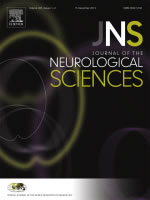World Brain Day 2023: Brain Health and Disability – Leaving No One Behind
Celebrating a Global Success
Tissa Wijeratne & David Dodick
Co-Chairs, World Brain Day Committee
World Federation of Neurology
World Brain Day 2023 has been a resounding success, igniting awareness about disabilities on a global scale. Our campaign reached out to over 123 countries, garnering the active support of millions from diverse backgrounds. Our coalition, comprising organizations, patient advocates, professional societies, traditional media, and social platforms, has laid a solid foundation for continued advocacy.
At the heart of our success was the World Brain Day 2023 webinar, where an impressive 29% of registered participants actively engaged. Representing regions across Asia, Africa, Europe, the Middle East, North America, and South America, this event truly transcended borders.
During the designated World Brain Day month in July 2023, our Facebook posts reached an astounding 4,490,063 people, accompanied by a remarkable 260% increase in new likes. The World Federation of Neurology's Instagram presence soared to 44,281, attracting 10.9K new followers and experiencing a staggering 670.8% rise in profile visits during the same period.
On Twitter (now known as X), World Brain Day made waves with a substantial increase in impressions, reaching 136,393,000 from July 17 to July 25, 2023, compared to just 5,956,000 impressions in July 2022. We're grateful for the widespread sharing of our content by numerous global organizations, including our partners in the Global Neurological Alliance.
Our impact extended to prestigious neurology journals, such as Lancet Neurology and the Journal of Clinical Neurosciences, sparking extensive discussions on the topic of disability. This underlines the profound reach and influence of World Brain Day 2023.
As we look ahead, don't forget to mark your diary for World Brain Day 2024! The exact date is July 22 2024. Stay tuned and join us in our mission to promote quality neurology and brain health for all. Together, we can make a difference and ensure no one is left behind.
In the Media
- Get Involved with World Brain Day ⧉ [Brain Life]
- Why your brain health matters ⧉ [University of Melbourne]
-
2023 Brain Health and Disability Webinar: Leave No One Behind [Press release]
AAN promotion of World Brain Day
Brain & Life® article Get Involved with World Brain Day to 1.5M print readers and on BrainandLife.org homepage
EAN Promoting Brain Health
On the occasion of World Brain Day, the EAN are offering open access to Brain Health content on demand and on their eanCampus platform until the end of July.
EAN have also collected a selected list of materials dedicated to Brain Health.
EAN Sessions on Brain Health featured on EAN TV 2023
Francophone World Brain Day
|
|
MexicoThe Mexico Government (Secretaria de Salud/ Ministry of Health) promoted the WBD in Mexico in the official website ⧉.

|
 WFNR World Brain Day Webinar
WFNR World Brain Day Webinar
The World Federaton for Neurorehabilitation organised a webinar and round table discussion on 22 July after the WFN webinar.
Topics covered included:
- Neurorehabilitation: Where are we - where to go: Future perspectives
- The WFNR Task Force for Community Based Rehabilitation
- WFNR contribution to global international strategies
- Disability solutions worldwide (Round table discussions)
- The neurology revolution: the global burden of neurological diseases and strategies for enhancing brain capital for human development
- Integrated care in perseveration (acute care), prevention (secondary prevention) and plasticity (recovery) to maximize post-stroke outcome
World Brain Day Webinar
Jul 22, 2023 - 12PM (GMT)
 Speakers
Speakers
- Prof. Wolfgang Grisold, President, World Federation of Neurology
- Dr. Tarun Dua, Unit Head, Brain Health Unit, World Health Organization
| Access | Prof. Volker Hömberg, President, World Federation for Neurorehabilitation |
| Awareness | Prof. David Dodick, Emeritus Professor of Neurology at Mayo Clinic and Co-Chair, World Brain Day |
| Prevention | Prof. Tissa Wijeratne, Co-Chair, World Brain Day |
| Advocacy | Prof. Alla Guekht, Trustee, World Federation of Neurology |
| Education | Prof. Steven Lewis, Secretary General, World Federation of Neurology |
| WFN Regional Association Presidents |
Dr. Carlayne E. Jackson Dr. Augustina Charway-Felli Prof. Hamidon Basri Prof. Paul Boon Prof. Marco Medina Prof. Hany Aref |
This World Brain Day will provide a vital opportunity to fight for the equality of people with disabilities on a global scale.
Through advocacy and policy changes, our collective voices will spark a worldwide movement for better health care access that will lift the global burden of brain disabilities.Prof. Tissa Wijeratne, World Brain Day Co-Chair.
When we all work together, we make significant strides toward achieving a better universal understanding of brain health, which can help us create a real difference for individuals living with disabilities.
We anticipate World Brain Day 2023 to be a step in the right direction.Prof. Grisold
Individuals with disabilities have so many odds stacked against them.
We selected this year's theme to bring attention to the large number of people suffering from neurological disability worldwide.Prof. Grisold, President of WFN
This is our chance to show up for people with disabilities that stem from neurological diseases and create a global effort to break down barriers that prevent them from achieving the highest possible standard of health that everyone deserves.
So many of these individuals face stigma, discrimination, lack of access to professional care and rehabilitation that can change their lives.David Dodick, MD, Emeritus Professor of Neurology at Mayo Clinic, and World Brain Day Co-Chair.
This World Brain Day is framed by five key aims:
- Prevention: Brain disabilities can be prevented, treated and rehabilitated.
- Awareness: Global brain health awareness can reduce the disability associated with brain disorders.
- Access: Universal access to care, treatment, rehabilitation and assistive technology is essential.
- Education: Education increases equity for those living with brain disabilities.
- Advocacy: Brain health is a human right that applies to everyone, everywhere.
Prevention
- Disability results from the relationship between a person's health condition and environmental factors—including stigma, inaccessible public spaces and a lack of social support, according to WHO.
- Almost everyone will experience temporary or permanent disability at some point in their life.
- A person's environment influences how they experience the disability they live with.
- Brain disabilities can be prevented, treated and rehabilitated.
- If the current rate continues, it is estimated only 23% of the burden from neurological disorders will be prevented by 2040.
Awareness
- Neurological disorders are the number one cause of disability-adjusted life years.
- Neurological disability can be long-term physical, mental, cognitive or sensory impairments that may restrict a person from fully participating in society.
- Understanding the importance of prioritizing brain health requires an awareness of the important role the brain plays in leading a meaningful and purposeful life.
- Neurological disorders such as stroke, migraine, dementia, meningitis and epilepsy are the number one cause of disability-adjusted life years.
- People with disabilities can die up to 20 years earlier compared to people without disabilities.
- People with disabilities are twice as likely to develop chronic conditions which can further negatively impact brain health such as depression, diabetes, obesity or stroke.
- Care for brain disabilities is often provided by unpaid family members or friends.
Access
- Universal health coverage and access is an essential aspect of health equity.
- Resources for improvement can be made locally to reduce gaps in equity.
- Access to diagnostics, medicines, interventional procedures, assistive technologies, biological products and cell and gene therapy are required to optimize brain health.
Education
- Education of health care professionals will reduce the global impact of brain disabilities.
- Public education will empower individuals to seek care, optimize their brain health and reduce the disability associated with neurological disorders.
Advocacy
- Together, we must advocate for equality for those with disabilities and address discrimination.
- Stigma, discrimination and social exclusion are common challenges that people living with brain disabilities—and their families—unnecessarily endure.
- The prevention and care of brain disabilities is a responsibility for all of humanity. We must work to unite health officials, policymakers and the public to work together for solutions.
Brain health, disability, and the need for broader thinking
 The Lancet Neurology
The Lancet Neurology
EDITORIAL| VOLUME 22, ISSUE 9, P769, SEPTEMBER 2023
DOI: 10.1016/S1474-4422(23)00236-3 ⧉
The theme of the tenth World Brain Day, held on July 22, 2023, was brain health and disability. World Brain Day has been organised annually since 2014 by the World Federation of Neurology (WFN) and this year was run jointly with the World Federation of Neurorehabilitation (WFNR); together, these organisations want to increase awareness and reduce barriers to health care for people with neurological disabilities.
World Brain Day 2023 - Brain Health and Disability: “Leave no one behind“

Journal of the Neurological Sciences
EDITORIAL ARTICLE 2023, 120720, ISSN 0022-510X
Tissa Wijeratne, David W. Dodick, Steven L. Lewis, Alla Guekht, Ksenia Pochigaeva, Wolfgang Grisold
DOI: 10.1016/j.jns.2023.120720 ⧉
Worldwide, the number of persons with disability is assumed to be around 1.3 billion. Although several definitions exist, such as the medical and social models, the social model has more holistic approaches and engulfs more aspects. Historically, many considerations were based on eugenics until the middle of the 20th century when a change of paradigm occurred, and disability has since been subject to many developments in the past decades.
Previously dependent on mercy and good will, disability has now become a human right, and the implementation of this change is still ongoing. Neurological diseases contribute worldwide to a large proportion of disability and can be classified as reversible or permanent, by their time course, and by disease specific elements. Addtionally, neurological diseases are often accepted and managed differently across cultures and are exposed to variable degrees of stigma.
The World Federation of Neurology (WFN) has initiated and continues to promote the concept of brain health, which has a wide range of inclusion and is best summarized in the World Health Organization paper (World Health Organization, 2022a). This concept is embedded in the Intersectoral Global Action Plan (IGAP) (World Health Organization, 2022a), which created a global tool to promote neurology, and the WFN is using this tool for the 2023 World Brain Day to promote and introduce the concept of disability.
 World Brain Day 2023 Toolbox
World Brain Day 2023 Toolbox
Download the WBD Toolbox today for WBD Logos, poster, web banner, and presentation.
Also are suggestions for scheduled social media posts in multiple languages:
|
|
Thank you for sharing!
 MEDIA CONTACT
MEDIA CONTACT
Ryan Pollock | ryan@yakketyyak.com
Yakkety Yak Marketing
 WFN CONTACT
WFN CONTACT
Mrs Jade Levy | Jade@wfneurology.org
WFN Education Project Coordinator


















































 Activities included:
Activities included:




